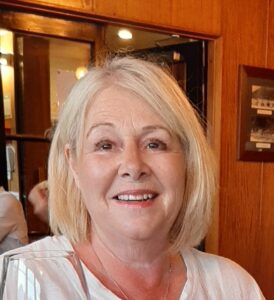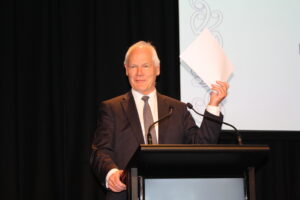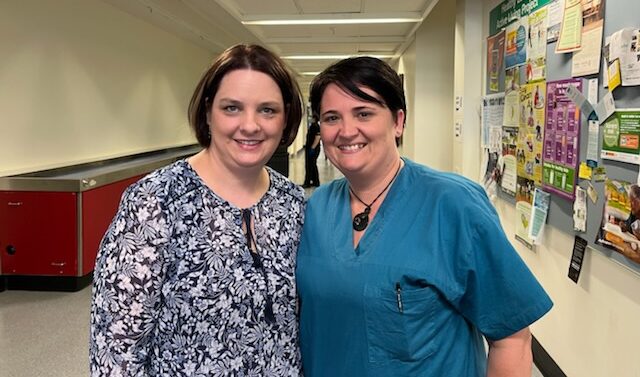
She has 40 years of nursing experience but was brought to tears for the first time in her career this month after a frightening episode with a critically ill patient.
Christchurch Hospital RN Nicki Burns said the incident highlighted the risks of severe short staffing for patients and staff.
“I can honestly say after Saturday night, I went home on Sunday and I cried, and I’ve never done that before in my whole nursing career – because I was so stressed.”
Burns, who works in the acute medical assessment unit, is throwing her support behind a proposed action by Te Whatu Ora (Health New Zealand) NZNO Tōpūtanga Tapuhi Kaitiaki o Aotearoa members to stop working additional shifts from October 3-9 to bring about fair pay, and highlight dangerous and chronic short staffing.
NZNO chief executive Paul Goulter wrote to Te Whatu Ora on Friday, September 16, advising of the proposed national action, unless it agrees to negotiate a fair deal for additional shifts.
But on Thursday, September 21, Te Whatu Ora lead for people and culture Rosemary Clements told Kaitiaki the payments were not a matter for negotiation and would not continue beyond September 30 anyway.
“The payments were an extraordinary step in response to an extraordinary situation, namely excessive staff shortages due to Covid-19 illnesses . . .”
“We are pleased to see the need for additional hours is reducing significantly as Covid-19 and flu infections drop, and spring sees the weather start to improve.”
Incentive payments debacle – how did we get here?
March 2022 – Auckland district health boards brought in additional shift incentive payments for nurses, midwives and allied staff of $500 per full night shift and $250 for day shifts, in addition to MECA overtime rates. They offered resident medical officers $60-$195 per hour, and senior medical officers $250-$350 per hour.
June 13 – Te Whatu Ora reached an agreement on incentive payments with unions representing resident doctors. Payments ranged from $80 to $220 per hour, depending on seniority and type of shift.
July 5 – TWO provided all unions draft document – which included payments. Required feedback by 9am July 8. NZNO didn’t have time to consult with members and submit on it.
July 18 – Te Whatu Ora chief executive Margie Apa released incentive package details for nurses for the period July 1-September 30 of $100 per each eight-hour shift, or $800 for five night shifts. The memo said “other locally arranged well-being initiatives to be put in place”.
Mid-August – NZNO raised an employment relationship problem with Te Whatu Ora over the issue, industrial adviser David Wait said.
” . . they were changing the individual terms and conditions of our members and they hadn’t followed the processes under the employment act that enabled them to do that.”
August 25 – Te Whatu Ora agreed to a mediation with NZNO, after initially refusing to engage.
September 8 – In a written submission, NZNO told Te Whatu Ora:
- The payment programme was applied without negotiation, was a “flawed regime which treats front-line health workers differently based on existing gender and power structures” and was unacceptable.
- An equitable offer would be double time with no triggers required.
- A new deal for the payments would need to include backpay to June 13 and health, safety and wellbeing measures for staff.
- Members were extremely angry about the payments and 88 per cent of those surveyed (about 1500) said they would no longer work additional hours.
September 16 – Paul Goulter called on Te Whatu Ora members to work only contracted hours during the week Monday, October 3 to Sunday, October 9.
Burns said the additional shifts incentive pay of $100 per eight-hour shift was not fair, especially in comparison with the agreement for doctors.
“We are pleased to see the need for additional hours is reducing significantly as Covid-19 and flu infections drop, and spring sees the weather start to improve.”
A document seen by Kaitiaki shows resident doctors were offered between $80-$240 per hour for additional shifts, as well as protections for wellbeing including sufficient opportunities for naps on night shifts, and supporting requests for annual leave.
“But it’s so much more than the winter payment. People are burnt out . . . we’ve got a minister of health that does not support the people he should be looking out for, so nurses are very disillusioned.”
 |
On a recent busy weekend nightshift, Burns was nurse in charge and the ward was short by three nurses.
She had to escalate the transfer of a young female patient, who was becoming critically unwell, to the intensive care unit.
“That was really frightening for me. It showed what can happen when our staffing levels are so low, and how easily our registration can be at risk.”
In the circumstances, Burns said she was appreciative of how hard the charge nurse was working to support her team.
“Every day, all the time, we have gaps – ‘we need three for night shift, we need this, we need that’ – and you feel guilty because you feel bad for your colleagues.”
Constantly having to do more than 40 hours per week left nurses tired, stressed and more prone to illness, Burns said.
“If they pick up extra hours or an extra shift, you can guarantee somewhere down the track, in two weeks, they will be on a sick day.”
Burns said not doing additional shifts would be challenging for staff because they did not want to do anything to put patients at risk.
 |
Christchurch ED nurses Kez Jones and Tania Thompson agreed it would be a challenge not to pick up additional shifts – but they felt it was their only option to achieve change.
“Everyone is breaking and you have your staff in tears and they just can’t cope with it any more and it’s not sustainable. So we have to do something and if this is what we have to do to highlight how bad it really is . . . then that is what we have to do.”
Jones said there were already 96 shifts with staffing gaps in the week of October 3-9.
The flow of requests to fill staffing gaps was overwhelming, Thompson said.
“Every day, all the time, we have gaps – ‘we need three for night shift, we need this, we need that’ – and you feel guilty because you feel bad for your colleagues.”
Te Whatu Ora’s incentive offer was “a massive insult”, Jones said.
While extra pay for additional shifts would not relieve pressure, it would be an acknowledge of the extra work nurses were putting in, she said. ” . . . until we get the long-term solution, which is recruiting more staff, which we all know is not going to be a simple fix.”



